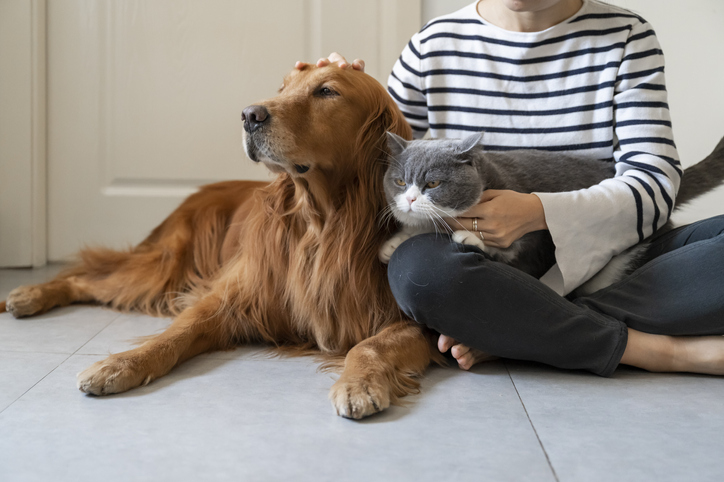
In the UK, nearly 50% of households have a pet. What happens to pets in the context of a divorce is a very important issue for clients, even though in relative terms, pets may have a low financial value.
If you want to keep the family pets in your divorce, you need to understand the law.
What UK divorce law says about pets
According to the law, a pet is a personal possession like anything else, such as a TV or a fridge. No special rules apply. This is different in certain states of America and parts of Canada and more recently the Spanish courts have introduced some specific rules around pets. However, there is nothing in the UK.
UK courts are also very loathe to deal with them. They are very busy and there are a number of judgments where it has been made clear they do not wish to get involved in arguments about pets in divorce, as it is considered disproportionate.
Therefore, the real question to address is what can you do in advance to maximise your chances of keeping the family pet?
How to keep your pets in the divorce
Firstly, you need to be clear about who paid the money when the pet was purchased in the first place. The next point is to check whose name is on the various ownership documents for the animal. Moving forward, whose name is on the pet insurance and who pays the bills for the animal in terms of vets bills, insurance and food.
If it is thought this might be a problem you can enter into a pet-nup. Including provisions about pets is increasingly common when dealing with pre-nuptial, post-nuptial or co-habitation agreements.
Can a pet-nup properly protect you?
Such agreements will be considered very significant by the court in determining who should retain the animal in the absence of agreement, as when all else fails, the court will fall back on the contractual position.
The best advice is to have an agreement in advance and in that agreement it can set out whatever details you want, where the animal stays, is the animal shared, who exercises the animal etc. This also includes dealing with the costs of the animal. It is likely that if there is such an arrangement, the court will follow it.
However, if your relationship comes to an end and you do not have a document setting all this out there is nothing to stop you entering into an agreement in relation to the pet at the time. If this is not possible, consider mediation to sort the issue out rather than paying lawyers to be involved. Mediation can of course deal with all the issues around divorce not only pets or can be limited exclusively to the pest.
Extra considerations
When considering pets, this is an issue where some people have something of a blind spot and you need to consider firstly what is in the best interests of the animal and then to look at what might be the wishes of the children, if there are children involved. You also need to consider the practical arrangements about who is going to be around to feed or can generally deal with an animal if both parties are working.
As stated above, courts are generally unwilling to get involved in such discussions if they can possibly avoid them. The best thing is to sort this out yourselves by agreement and failing that mediate on the subject rather than incur substantial legal fees.
Agreements that are reached between you, where you both have got what you want, are often the best ones, particularly when dealing with a much loved family pet.
If you would like to discuss pet-nups or how pets are dealt with on divorce, please get in touch and a member of our Family team would be happy to assist you.
